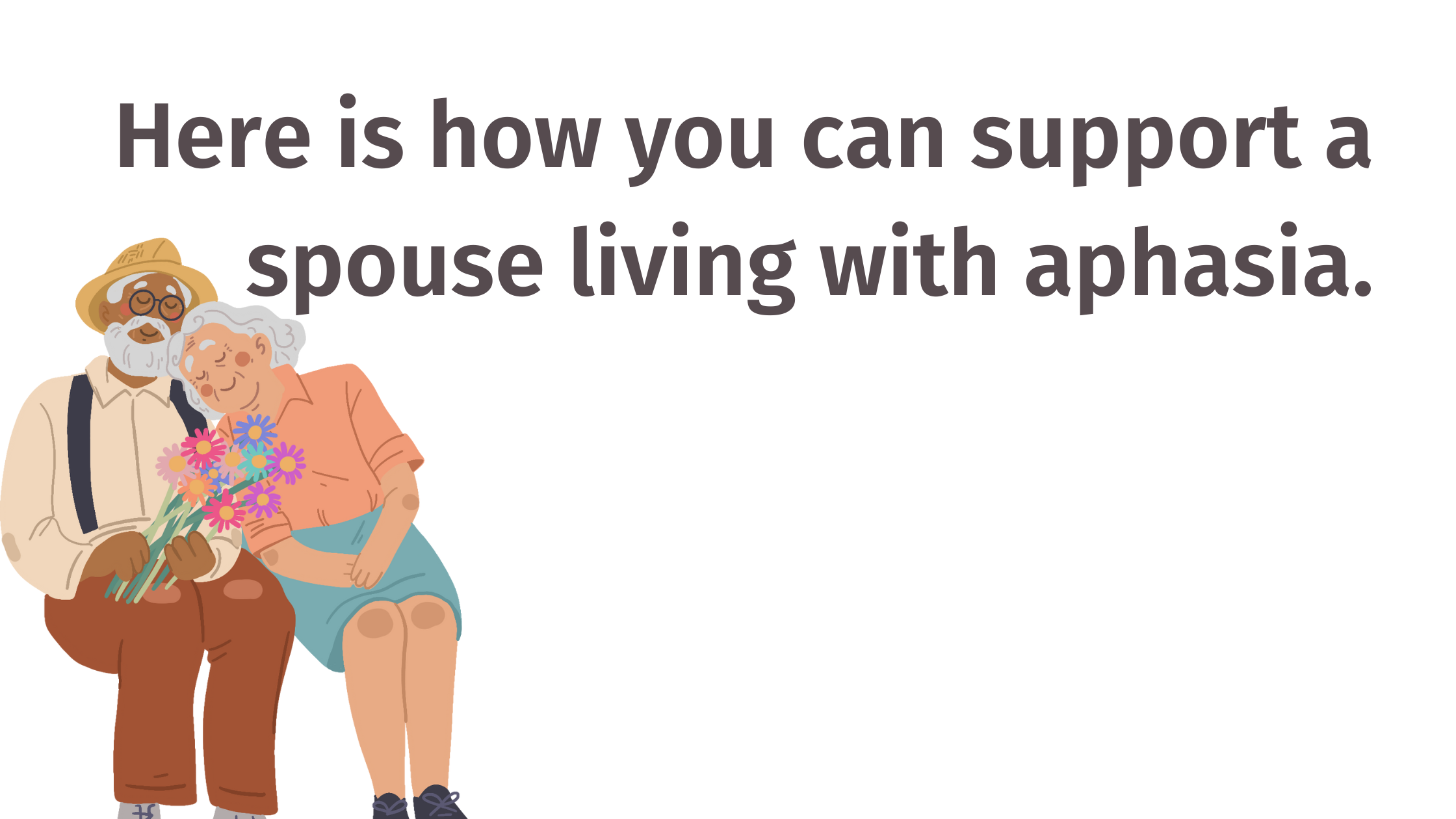My Spouse has Aphasia. Now What?
What is aphasia?
Aphasia is a language impairment that results from a stroke, or other damage to the brain caused by infections, tumors, etc. Aphasia can cause difficulty expressing yourself, understanding others, reading and/or writing. It could have just a slight impact on your communication skills, like occasional problems coming up with the right words. For other people, it can be severe and make it quite challenging to carry on a conversation or to express your basic needs. A speech-language pathologist is a professional who is trained to assess someone’s communication strengths and weaknesses.
If you are newly experiencing life with a spouse diagnosed with aphasia, things may feel a bit scary and uncertain. On the one hand, you are probably thankful that your spouse is medically stable. On the other hand, you may be dismayed to learn that she now has trouble communicating with you and others. Here are two things that may encourage you:
Your spouse with aphasia is not “losing her mind” nor does she have lower intelligence.
Aphasia usually gets better compared to what you experience in the first couple weeks.
There is a broad selection of therapy techniques that are known to help different aspects of aphasia. I recommend approaches that are specifically geared toward a life participation approach. In other words, seek a therapeutic approach that will help your wife participate in activities that she once enjoyed, and to communicate in those meaningful settings. In fact, speech therapy can help her with all the domains of language that were affected:
Believe it or not, speech therapy can help your wife to both understand and laugh at your humor again, to tell you what she is thinking, to read text messages from you again and to write birthday cards for the grandchildren like she always did.
Here are a few suggestions for easing the communication between the two of you:
Limit distractions. Is the television on? Are cell phone alerts constantly going off in the background?
Speak slowly. The best way to do this is to take more pauses when you talk, it’s a great way to slow yourself down so that your wife can follow along better.
Make eye contact. Not only is that a great way to connect, but it helps your wife to see your mouth as you talk and to look at your facial expressions. This will help clue her in to what you are talking about.
Ask her single layer questions.
X Instead of “Do you want me to adjust the air, bring you a blanket then turn out the lights?”
✓ Try “Do you want the room warmer?” (pause for a response)
“Would you like a blanket?” (pause for a response)
“Do you want the lights off?” (pause for a response)
Here are a few suggestions for your wife’s well-being as it pertains to communication:
Stay connected, be social.
It can be tempting to avoid the neighborhood block party, to avoid going to church, or to avoid a family birthday dinner. However keeping up with some family routines and social connections can do wonders for helping you work through tough feelings that come up with aphasia.
Start small. First try a video call with an extended family member. Then trying going over to family for that birthday dinner.
Visit a support group.
You may feel like people around you don’t understand aphasia. However if you find an aphasia support group, either locally in person or online, you will find yourselves with others who fully understand living with aphasia.
Maybe your wife has been trying really hard to connect with you to the best of her communication ability. Yet, you see her shy away from engaging with others because it’s still really hard for her. Whether you are a couple weeks into an aphasia diagnosis or a couple years, speech therapy can help. Bright Speech is based in Missouri City , TX and serves adults and seniors in the greater Houston metro. Get in touch for more details on how to get started with aphasia treatment.

